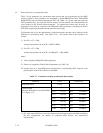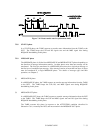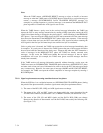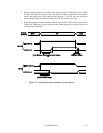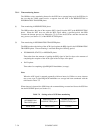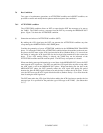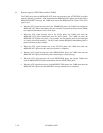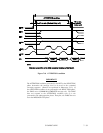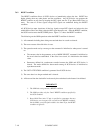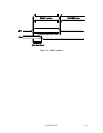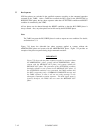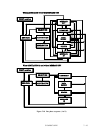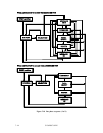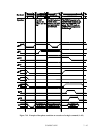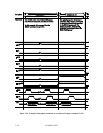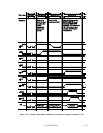
7 - 40 C156-E097-01EN
7.6.2 RESET condition
The RESET condition allows all SCSI devices to immediately release the bus. RESET has
higher priority than any other phases and bus conditions. Any SCSI device can generate the
RESET condition at any time by keeping the RST signal true for 25 µs (Reset Hold Time) or
more. The state of all bus signals except RST signals are undefined during the RESET
condition.
All SCSI devices must deactivate all the bus signals except RST signals and release the bus
within 800 ns (Bus Clear Delay) after the RST signal becomes true. After the RESET condition,
the SCSI bus must enter the BUS FREE phase. Figure 7.17 shows the RESET condition.
The following are the ODD operations when the RESET condition is detected.
1) All commands including those being executed and those in a stack are cleared.
2) The reserve status of the disk drive is reset.
3) The operation mode set by a message or the command is initialized as when power is turned
on.
• The current value in the parameter set by a MODE SELECT command is initialized to
the saved value last established. If the value is not saved, it is initialized to the default
value.
• Parameters defined for synchronous transfer between the ODD and SCSI device is
cleared. The mode defined for data transfer among all SCSI devices is initialized to
asynchronous mode.
4) The UNIT ATTENTION condition is generated for all SCSI devices.
5) The sense data is no longer retained and is cleared.
6) All data read into the data buffer in advance by the read-ahead cache feature is invalidated.
IMPORTANT
1. The ODD does not generate a RESET condition.
2. The ODD provides only the "hard" RESET condition specified by
the SCSI standard.
3. Reset Hold Time (min. 25 µs) is specified to guarantee that any
SCSI device can recognize the occurrence the RESET condition.
On the ODD, even if the pulse width is less than 25 µs, the RESET
condition is effective.



